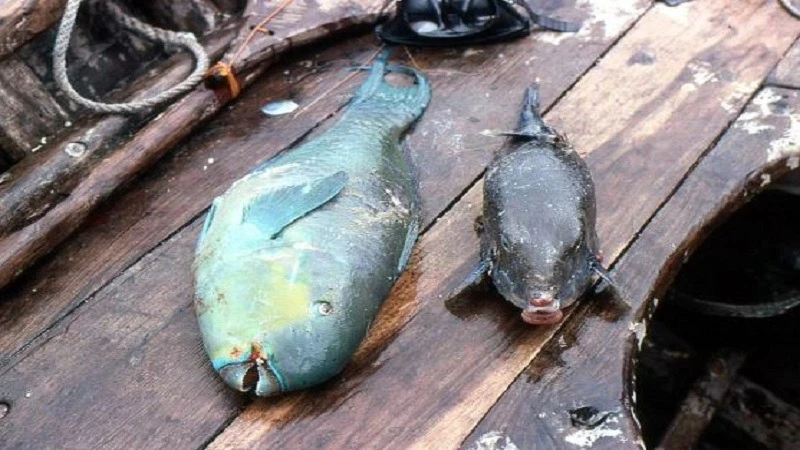Z’bar rises in global fish intake average

ZANZIBAR leads in fish consumption at the household level, with each resident consuming an average of 22 kilogrammes of fish per year, far above the 8.5 kilogrammes national average and slightly above the global average of less than 21 kgs.
Shaaban Ali Othman, the Blue Economy and Fisheries minister for Zanzibar disclosed this facet of economy at a regional meeting on fish safety and the use of fishing technology here yesterday, bringing together key officials from 20 African countries.
He said that Zanzibaris meet global standards for fish consumption due to the high volumes of fish caught, as Zanzibar has attained 100,000 tonnes of fish harvested this year, up from 80,000 tonnes in 2023.
An online entry says that Tanzania's per capita fish consumption is around 8.5 kg per year, which is lower than the global average of 20.5 kg, explaining this feature as due to population growth outpacing the growth of aquatic food supplies.
Increased fish consumption has contributed to improved protein intake and overall health among the population, with fish serving as a key food source, he said, underlining that the conference is refreshing for Zanzibar.
The archipelago is surrounded by sea water and home to numerous fishers, he said, asserting that the meeting would also address ways for Zanzibar to combat illegal fishing activities.
"Many residents have shown interest in using modern fishing tools to catch legally mature fish," he stated, noting that fish food safety is related to high protein levels in fish and from fish deemed suitable for harvest.
Dr Zakaria Ali Khamis, the Marine Products Research Institute director general, said that Zanzibar is committed to fish safety by promoting alternative fishing methods and educating fishers to abandon illegal practices, to catch mature fish.
Regulations pegged to the 2010 Fisheries Act No. 7 sets out guidelines for the various authorities in exercising their mandate for managing marine fisheries, he said.
Hashim Chande Muumin, a fisheries coordinator, said the government has provided fishing guidelines where fishers are supposed to catch only legally mature fish and avoid harvesting juvenile fish.
Zanzibar as well as the Mainland stands to benefit from research findings presented at this meeting as they address wider fishing issues as well as local challenges, he said.
Zanzibar residents are gradually accessing user-friendly technology that could help reduce fish catch losses, he added.
Top Headlines
© 2024 IPPMEDIA.COM. ALL RIGHTS RESERVED






















